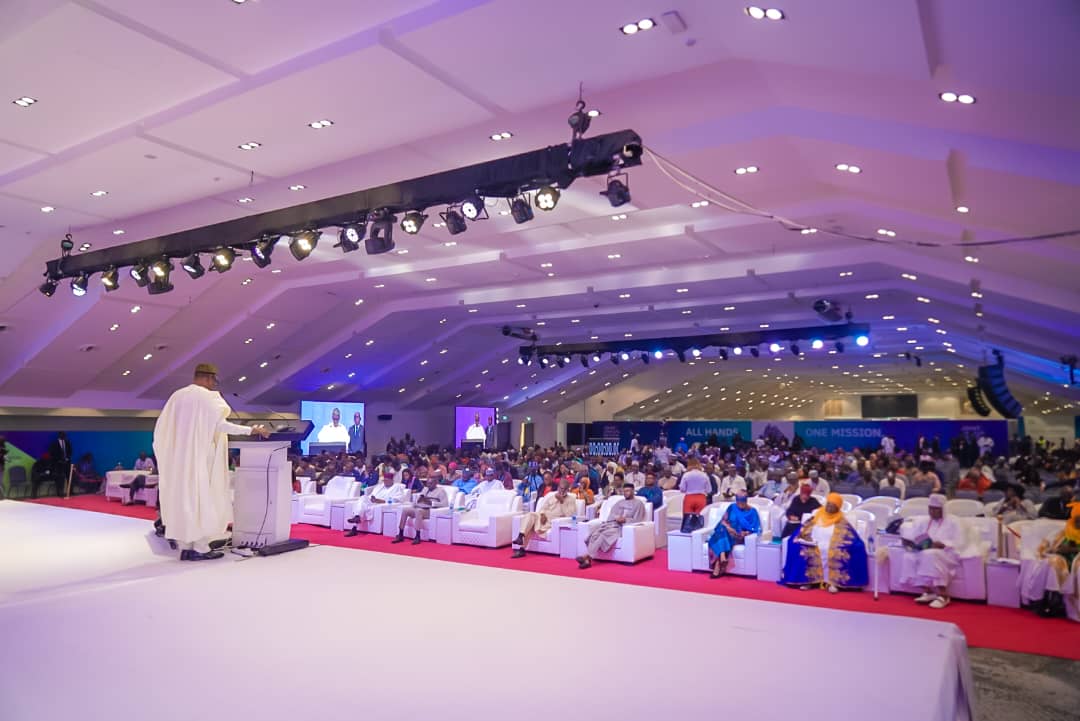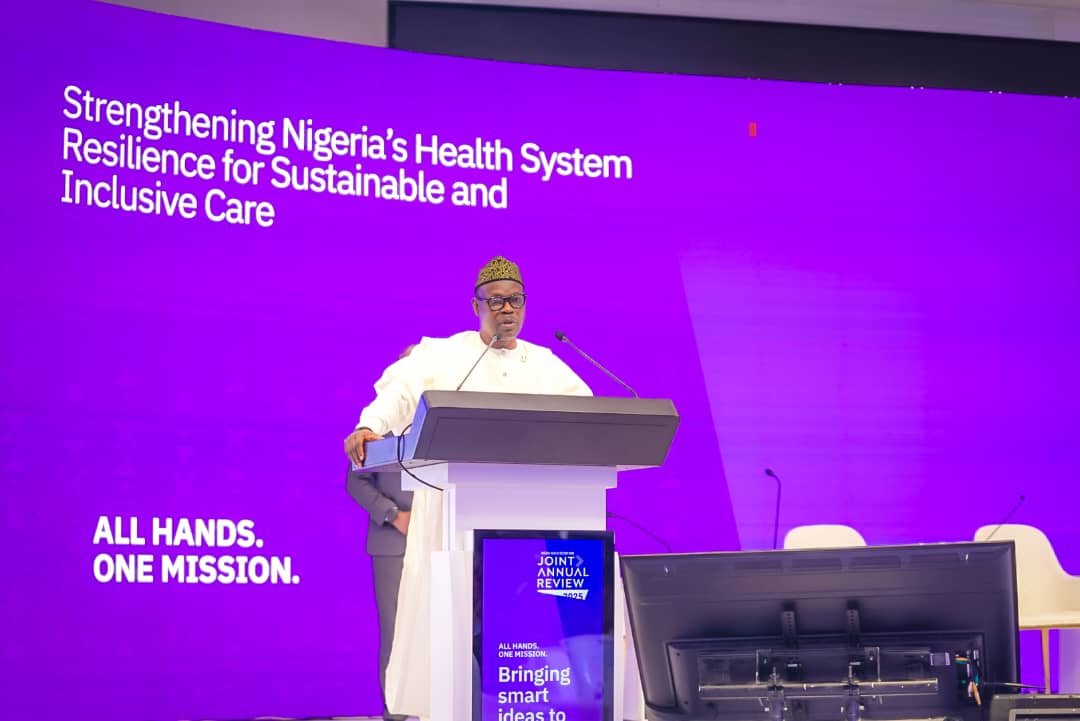TOYIN ADEBAYO, ABUJA
Nigeria is targeting 20 percent national health insurance coverage by 2027 as part of President Bola Ahmed Tinubu’s agenda to deliver a resilient, inclusive, and sustainable healthcare system, the Minister of State for Health and Social Welfare, Dr. Iziaq Adekunle Salako, announced Thursday.
Speaking on the second day of the 2025 Joint Annual Review Meeting (JAR) at the Transcorp Event Centre in Abuja, Dr. Salako outlined transformative reforms under the Nigerian Health Sector Renewal Investment Initiative (NHSRII), structured around a Sector-Wide Approach (SWAp) to streamline funding, coordination, and accountability across federal, state, and local tiers.
“We are building a health system that anticipates, withstands, and recovers from shocks—a truly resilient Nigerian health system,” he declared.

While acknowledging gains in maternal and child health, Salako stressed the urgency of accelerated action. The 2023 Nigeria Demographic and Health Survey (NDHS) reported a Maternal Mortality Ratio of 512 per 100,000 live births (down from 576 in 2018) and an Under-5 Mortality Rate of 110 per 1,000 live births (from 132 in 2018).
Yet systemic gaps persist: government health spending stands at just 5.2 percent of GDP—well below the 15 percent Abuja Declaration benchmark—while out-of-pocket expenditure accounts for 71 percent of total health costs. Insurance penetration remains low at 10–12 percent.
Salako highlighted President Tinubu’s executive order mandating health insurance for all Ministries, Departments, Agencies (MDAs), and public entities as a cornerstone of universal health coverage enforcement.

Key Reforms Underway
- Basic Health Care Provision Fund (BHCPF): Funding absorption rose from 45 percent in 2019 to 78 percent in 2023.
- National Health Insurance Authority (NHIA) Act 2024: Expanded enrollment to over 20 million Nigerians.
- Power for Health Initiative: Completed more than 500 high-impact infrastructure projects for reliable electricity in health facilities.
- Nigeria Digital in Health Initiative (NDHI): Established a unified National Digital Health Architecture, eliminating data silos.
- Workforce Expansion: Recruited over 37,000 new health workers since 2023; training underway for more than 70,000 personnel.
Disease Control Milestones
- HIV/AIDS: 1.78 million on treatment; 80 percent national ART coverage; 96 percent PMTCT coverage.
- Tuberculosis: 80 percent case notification; 85 percent treatment success rate.
- Malaria: 63 million insecticide-treated nets distributed; ~18 million cases averted annually.
- Immunization: Penta-3 coverage at 57 percent (2023); zero wild poliovirus cases since 2020.
More than 30,000 Primary Health Centres (PHCs) are undergoing upgrades, with quality scores climbing from 42 percent to 67 percent. The Health Workforce Registry, diaspora engagement programs, and rural retention incentives aim to reverse brain drain—rebranding the “Japa syndrome” into “Japa-da,” Salako quipped.
The administration is advancing health financing through increased capital releases and infrastructure bonds.
A Call to Collective Action
“Our vision is simple: quality healthcare for every Nigerian, anywhere, without financial ruin,” Salako stated.
He urged federal agencies, states, development partners, and communities to deepen collaboration.
“Only a healthy population can build a prosperous, secure, and great nation. Let us deliver health—and make Nigeria great again,” he concluded to sustained applause.

